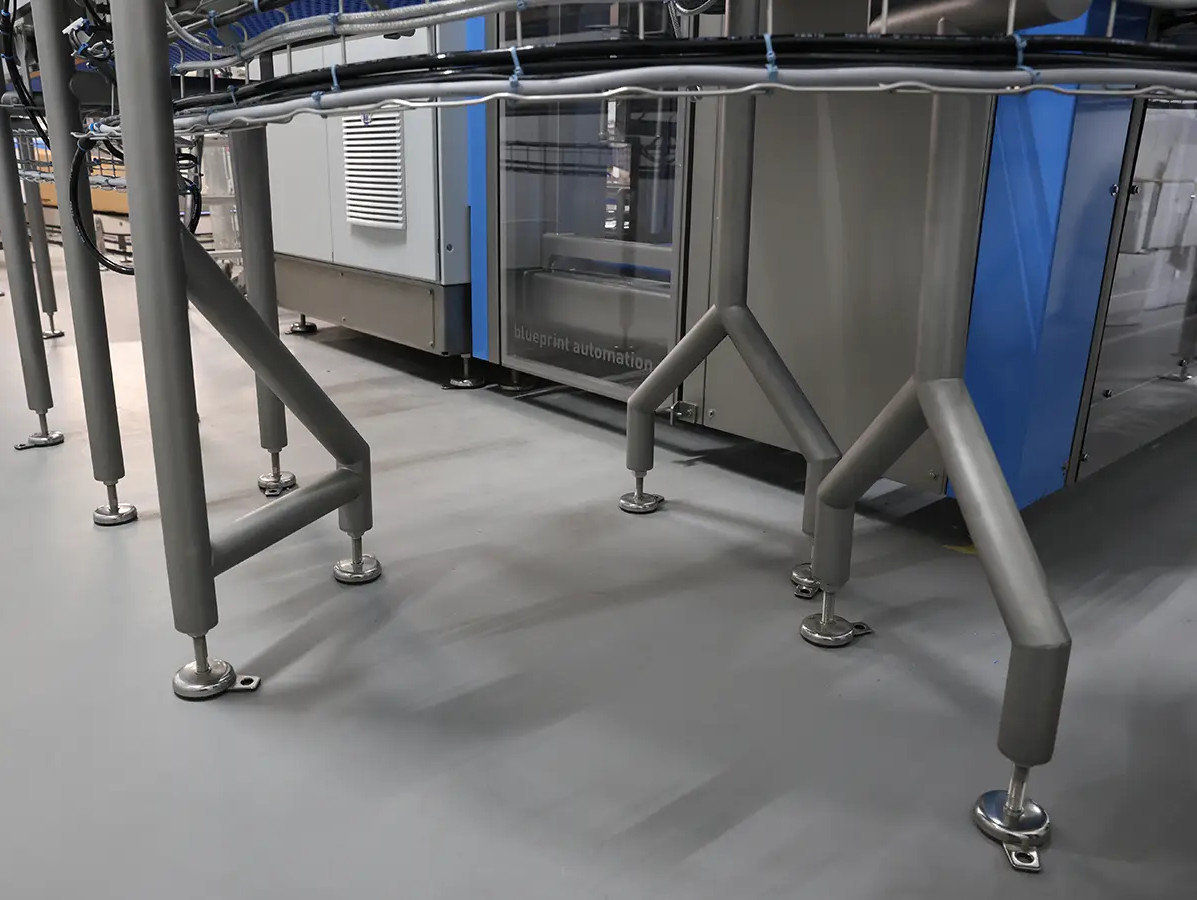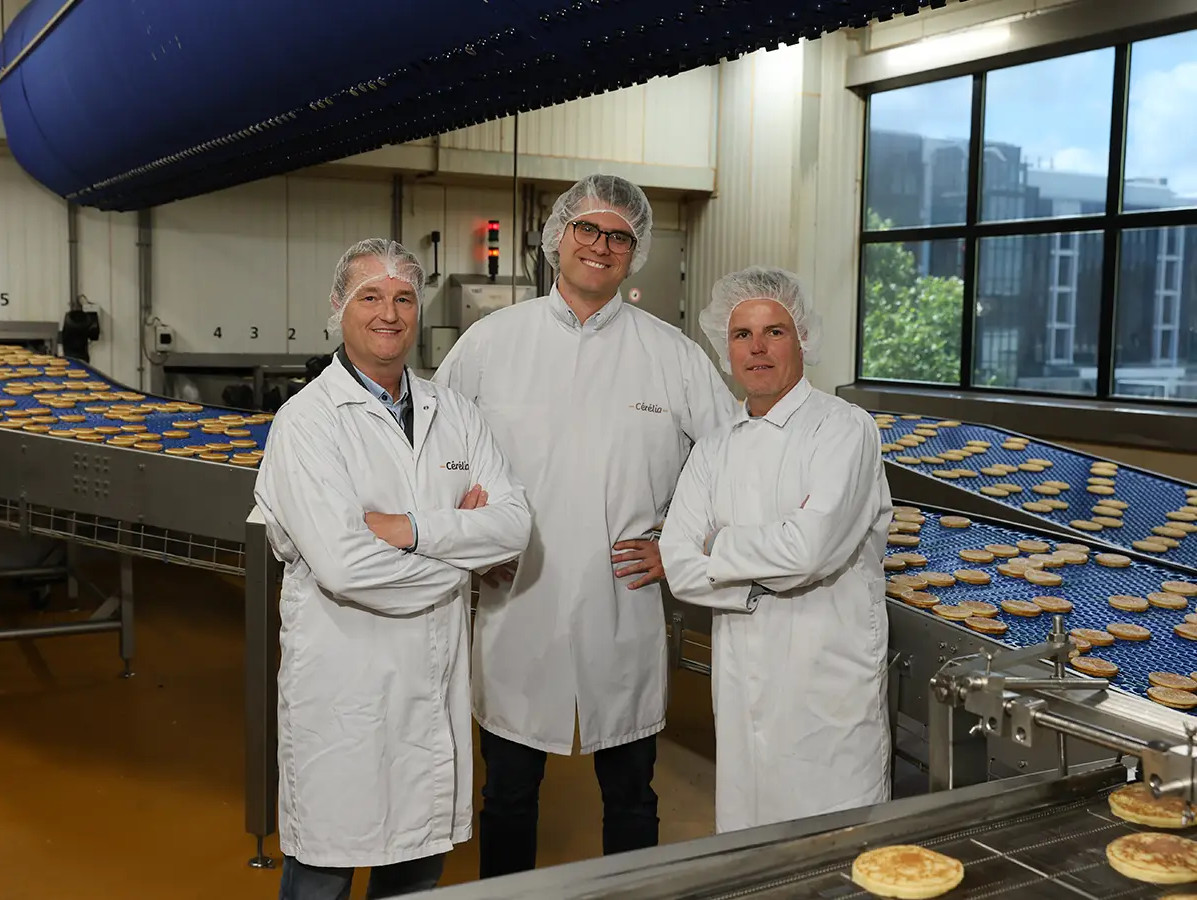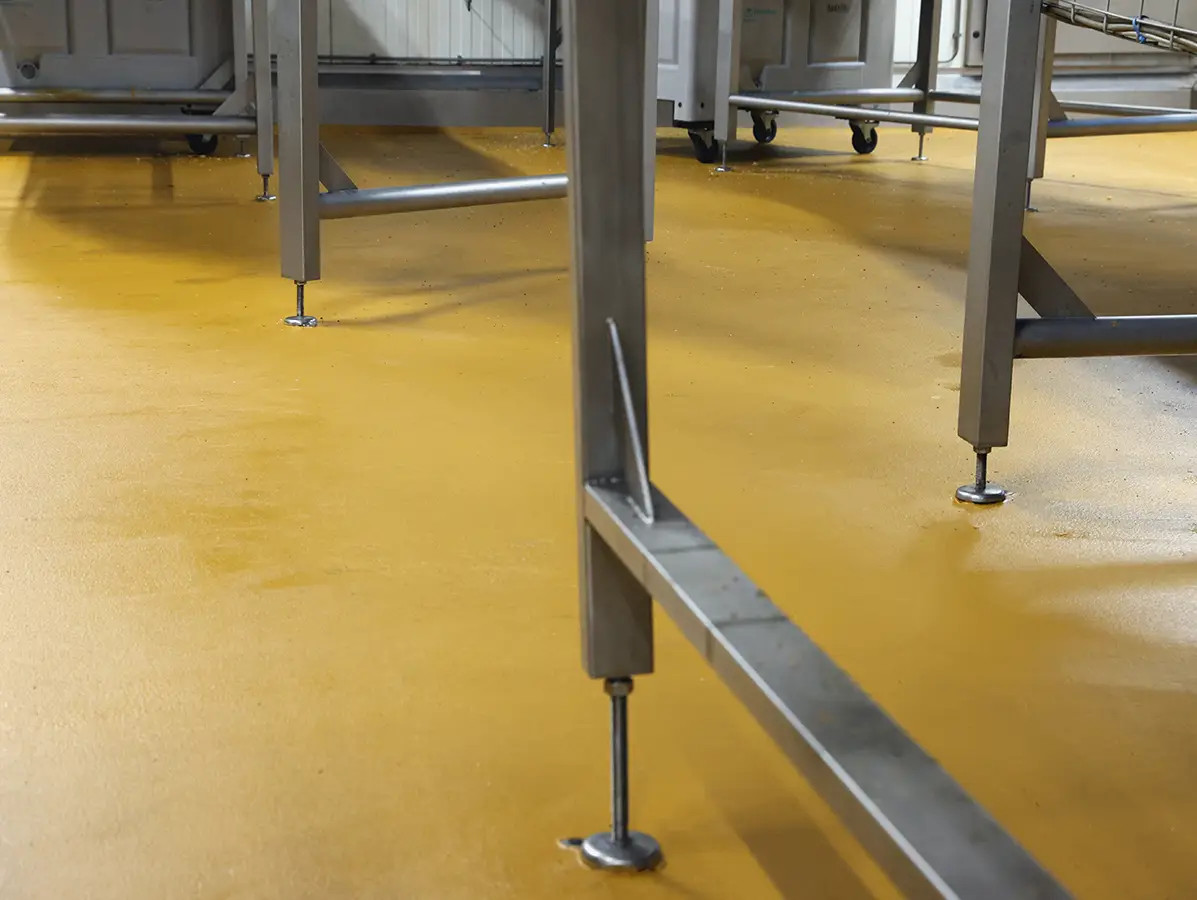
Finding the entrance to Cérélia’s building on Baanhoek in Sliedrecht takes a bit of searching due to the renovation, but the smell of freshly baked pancakes points you in the right direction. The producer of, among other things, chilled pancakes and mini pancakes is investing in a more sustainable future.
“A sustainable future applies not only to the company itself, but also to the surrounding area,” begins Jens Andriessen, Project Manager at Cérélia. “With this investment, we’re also serving a social purpose. Around 30% of our employees live in Sliedrecht. We actively involved local residents in our expansion plans. We could have built a new facility elsewhere, but this is where we started; it’s where we grew, and we’re happy to give something back to the community. We want to create both economic and social impact.” The company works with local organisations, including the Sliedrecht Food Bank, to support people in vulnerable situations, and it sponsors a range of (sports) clubs.

From left to right: Edwin Slingerland, Jens Andriessen, and Michael Driessen
The company began in 1995 as ‘De Bioderij’ under the leadership of Jan Vink and was acquired in 2015 by the French company Cérélia. Today, the food producer is the European market leader in chilled dough and pancakes, exporting to 50 countries worldwide. Cérélia’s products reach consumers both as private labels and under its own local brands. Chances are you’ve had them at home: pancakes, mini pancakes, American pancakes, or ready-made dough bases from the iconic Dutch brand JAN; a convenient meal solution or tasty snack.
Jens: “We’ve made regular investments in expansion over the past few years, such as our distribution center in Ridderkerk. Now it’s time for the next step. By centralizing everything at this location, we’ll make significant gains in efficiency and reduce transport movements. This is where craftsmanship and innovation come together. The warehouse is being expanded, and the upper floor will house storage areas and offices. We’re also investing in automation and robotics, sustainable systems, and an energy management system. We’ll place a ‘large battery’ to absorb peaks in energy demand. At the same time, the existing building is being refurbished. This expansion and renovation will give us the space to grow and develop further.”
In the existing building, the floors of the bakery, carton packaging area, and packing space were recently replaced with a Ruys floor, as the flooring systems from the Apeldoorn-based company are now referred to in specifications. Since its founding in 1974, the Ruys Group has built a solid reputation for floors in the food industry and other sectors with strict requirements. Michael Driessen, Project Engineer at Cérélia, was closely involved in the flooring project. He explains: “The floors are easy to clean, anti-slip, and resistant to heavy chemical, thermal, and mechanical stress. In a demanding environment like a bakery, that’s essential. Fast installation is also a key factor. When renovating, it’s all about keeping downtime to a minimum. The bakery floor was completed in under three days, while machines remained in place and cleaning continued throughout the process.”

According to Jens, the success of this ‘challenging operation’ comes down to a strategic partnership. “You can’t just show up and ‘put in a floor’. Renovation projects are unpredictable. It really helps to have a partner who thinks ahead and understands how things work on the production floor.”
“We take on an advisory role and follow an integrated approach,” adds Edwin Slingerland, Co-director of Ruys Group. “We always start with conversations with the people involved; the cleaning team, plant manager, and production manager, to understand the daily operations and adjust our planning accordingly. Our floors are always custom-made, tailored to the level of use and the demands of the space. Naturally, a bakery has different requirements than a packing area. In this case, we also installed three test sections. We consider proper preparation very important.” According to Edwin, experience plays a big role. “We’ve developed our own flooring system. Quality depends heavily on how it’s installed. We have an in-house training program for this. It takes years to become truly skilled. Fortunately, we have very little staff turnover.”
The speed of the process is also thanks to a unique feature of the floor. Edwin explains: “In a food environment, cleaning is constant. Traditional flooring systems require the space to be completely dry. Our floors are moisture-tolerant, which means we can work faster.” Ruys Group has also been commissioned by Cérélia to install the floors in the new section. Once again, the company has been involved from the early planning stages.
www.cerelia.com/nl
www.ruysgroep.nl
Photos: © Dennis Wisse Photography
Source: Vakblad Voedingsindustrie 2025